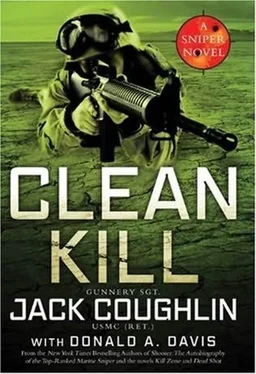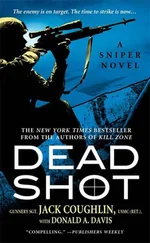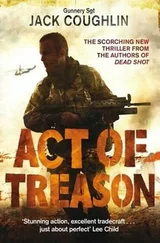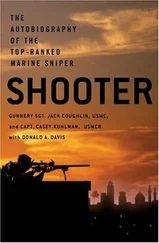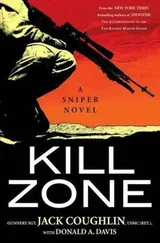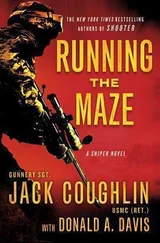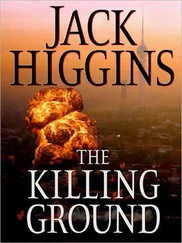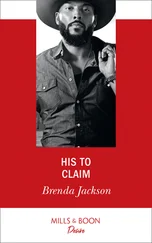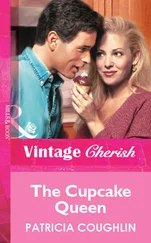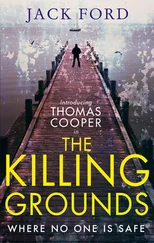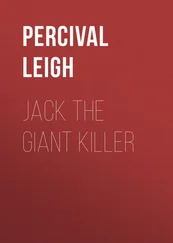The two muttawas who had been holding her friends had released them and now crashed into her, knocking Risha back onto the slippery, bloody tiles, screaming and punching her. The thick butt ends of their whips became bludgeons that rose and fell against her head. Risha managed to deeply slash the hand of one before the knife was knocked away and the two heavy policemen beat her savagely. She was already unconscious by the time one of them grabbed a handful of her raven-black hair and repeatedly slammed her face onto the hard stone until she was dead.
THE WHITE HOUSE
P RINCE A BDULLAH NORMALLY WOULDbe wearing a well-tailored business suit when he visited the Oval Office. His driver would slip quietly through the back gate on East Exec and stop beside a green-canopied walkway used by special guests to enter the White House with some protection from the media cameras. This time was different: The prince was driven up the long, curving driveway in full view of the press corps, which had been alerted to his visit and was waiting in a pack as he arrived at the front entrance of the West Wing.
The immaculate ebony limousine halted beneath the colonnaded entrance and a Marine guard in dress blues opened the car door. The prince stepped out, wearing elegant white robes that flowed like a wind-smoothed sail and an Arab kaffiyeh , a square of pristine white cloth folded into a triangle and held to his head by cords of spun gold threads.
He paused to smile and wave for the cameras and then turned to his left to do the same for the startled tourists gathered across the green lawn, beyond the big fence. Reporters shouted out questions, but he only continued to smile and wave, and then he stepped inside. Neither the president nor any senior member of the administration had been sent out to greet him.
It was an intentional piece of media theater, a show carefully crafted for maximum effect. Before even setting foot inside the White House, Prince Abdullah had sent an open visual message, that despite the dire news coming from Saudi Arabia, the House of Saud was still in control. This was a time to display strength and confidence, and not whimper. He had received reports that some of the weaker princes were thinking of fleeing the country during this crisis. Where was their pride? To do so was to deny their heritage and their names. Shameful. Abdullah had determined that whoever left now would be called to a severe accounting for their actions later.
Chief of Staff Steve Hanson was waiting just beyond the entrance portal and formally welcomed Abdullah, then escorted him directly to the Oval Office. President Mark Tracy was waiting, ready with a diplomatic smile that masked the bitterness he felt inside. This was not going to be pleasant.
The prince showed an equally formal smile as he shook the hand of Tracy, who was an old friend, exchanged polite greetings with others, and bowed slightly toward former Senator Catherine Hart, the new U.S. secretary of state. “Congratulations on your appointment, Madame Secretary, although it is terrible that you have been called into the position due to the tragic death of Secretary Waring. Your experience in foreign affairs will serve us all well in this troubled time.”
“Thank you, Mr. Ambassador. We are all happy that you were not seriously injured in that same, horrible terrorist attack.” Hart had been chairwoman of the Senate Foreign Relations Committee and when Waring was killed, President Tracy demanded an experienced hand at the reins over at Foggy Bottom. Hart would not miss a step in transferring her political power to the State Department, where career diplomats knew that her bite was worse than her bark. She was a stylish woman with short red hair and light blue eyes that expressed nothing she did not want them to show.
When everyone was seated, President Tracy began the conversation. “We have been monitoring the news reports, Mr. Ambassador. Perhaps you could advise us as to what is actually happening in your country. It appears quite serious.”
Abdullah knew that question would be asked and had chosen his response carefully. “There was already some unrest in a few places because of the proposed treaty with Israel. That was expected and being watched. The unexpected terrorist strike unleashed more disruption, but only in scattered areas. For the present, our security forces believe that the trouble is limited and that they have it under control. A handful of rogue conservative extremists stirring up trouble.”
“That seems quite contrary to many of the public reports,” said Secretary Hart. “The pictures on television show a situation that could only be described as rioting in some urban areas.”
“Television,” Abdullah said with a smooth smile. “The cameras will rush to a house fire and portray it as an entire city in flames. The TV people are using that broad brush approach because we have strict rules on censorship. Madame Secretary, Mr. President, I assure you both that we have it under control.”
“What about security in the oil fields?” President Tracy decided to get to the point.
“Nothing untoward is happening, thankfully. It seems quiet in those important places. We have forces stationed at all of the production facilities and they are on the highest alert.”
The president pushed casually back on the small sofa and let Secretary Hart roll out the next point. “And what is your conclusion on the assassination of the commander of the king’s private guard, and his family? Is there a loyalty problem within the Saudi military, Mr. Ambassador?”
Abdullah still remained unruffled. No questions that he had not anticipated. “The work of a solitary lunatic. Just as your intelligence people occasionally find a single spy in their own ranks, this zealot was swept up in the excitement. I can assure you that our troops remain committed to His Majesty and to the protection of the kingdom and its people.”
President Tracy looked across and met those powerful eyes. “Prince Abdullah, please be totally honest with us. We only want to help. Just ask for our support and we are here for you,” he said. “Whatever you want in supplies or materiel or manpower will be provided. Your government must not be overthrown. My planners tell me we could have boots on the ground in a matter of hours. I have spoken with other world leaders who are also willing to form an international coalition to protect those fields while your forces quell the uprising.”
Abdullah knew this was a turning point. “No. The kingdom appreciates your support, Mr. President, but a foreign military presence is the last thing we want or need. We are aware of your carrier battle group that has entered the Arabian Gulf and must insist that you keep your distance. This is an internal problem for our country. We are under assault by a gang of terrorists and we will deal with them appropriately. U.S. combat troops would only exacerbate the situation, not help resolve it.”
Cathy Hart spoke again, her voice firm. “Those oil fields need to be tightly guarded, Mr. Ambassador, and we cannot stand idly by if the fanatics somehow do gain the upper hand. Establishment of another theological government that is violently anti-American and anti-Western cannot be tolerated in the region.”
“Madame Secretary, you must learn to veil your threats better.” Abdullah laughed softly. “What you describe is a nightmare scenario that simply will not take place. Impossible. Your troops are not wanted. Do not make the mistake that was made in Iraq, when Muslims of various sects united in common cause against you as a foreign invader.”
There was a moment of silence as the development soaked into everyone present. The United States was thinking of committing forces. Saudi Arabia might deploy against the U.S. to increase its popular support. By changing the face of the enemy, the internal rebellion might be quelled.
Читать дальше
